Addiction never exists in a vacuum. Substance use disorders are complex conditions that can be the result of a number of underlying factors, such as a family history of addiction, chronic stress, illness, or co-occurring mental health conditions. In fact, many people who struggle with substance abuse also deal with underlying mental health concerns, such as depression, anxiety, or post-traumatic stress disorder (PTSD). This connection between addiction and mental health conditions is known as a dual diagnosis. One way to effectively treat dual diagnosis is through specialized dual diagnosis treatment.
At Athens Recovery, we offer dual diagnosis treatment for individuals who struggle with both addiction and mental health conditions. Our team of experienced behavioral health professionals understands that these conditions often intersect in complex ways, and we provide compassionate, evidence-based treatment to help clients learn to manage their symptoms and find lasting recovery.
Learn more about dual diagnosis and our other addiction therapy programs by calling 844.959.4998 or reaching out to our team online today.
What Is Dual Diagnosis Treatment?
Dual diagnosis treatment is a holistic approach to addiction recovery that addresses the physical, emotional, and psychological needs of clients. It involves treating both addiction and mental health conditions at the same time. This approach is based on the understanding that addiction and mental health can affect each other, and treating the two together can give clients the best chance of achieving lasting recovery.
Addiction and mental health conditions have a complex interplay. People with an existing mental health condition may turn to drugs or alcohol to manage their symptoms, while those struggling with addiction may develop mental health concerns as a result of long-term substance abuse. Substance abuse can also worsen the symptoms of existing mental health conditions, leading to a vicious cycle of drug abuse and deteriorating mental health.
Commonly Co-Occurring Conditions
The types of mental health conditions that co-occur with addiction vary widely, but some of the most common ones include:
- Depression
- Anxiety
- Bipolar disorder
- PTSD
- Personality disorders
The signs of co-occurring disorders can be subtle, so it’s crucial to seek professional help if you suspect you or a loved one is struggling with addiction and a mental health issue.
How Our Dual Diagnosis Treatment Program Can Support Recovery
At Athens Recovery, our dual diagnosis treatment program is designed to provide personalized, evidence-based care to help clients overcome addiction and mental health issues. We believe that true recovery requires treating the whole person and addressing the underlying causes of addiction instead of merely managing symptoms. Our program includes:
- A comprehensive assessment and evaluation to identify co-occurring disorders and tailor treatment plans accordingly
- Detox programs to ease withdrawal symptoms
- Individual and group therapy sessions to uncover and address underlying mental health conditions and triggers for addiction
- Cognitive-behavioral therapy to teach clients new coping skills and help them break negative thought patterns
- Family therapy to improve communication and provide emotional support during the recovery process
- Continuing care to create a long-term recovery strategy and prevent relapse
At every turn, our team is dedicated to providing compassionate, individualized care that helps clients on the road to sustained recovery.
